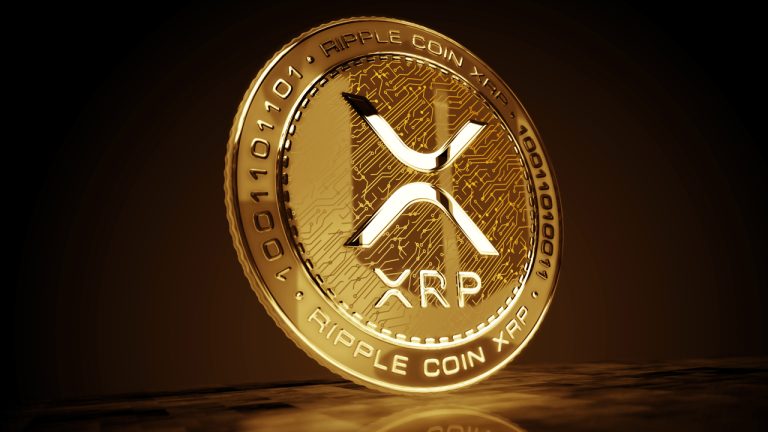Ripple vs. SEC — Respite for a Beleaguered Industry

On July 13, 2023, the U.S. District Court for the Southern District of New York (SDNY) finally issued an order in the infamous case brought by the Securities and Exchange Commission (SEC) against the payment settlement system and currency exchange, Ripple Labs, Inc. (Ripple). District Judge Analisa Torres’ highly anticipated order has been touted as a landmark victory by some digital asset lawyers and other professionals in the beleaguered industry. The SEC claimed Ripple and some of its senior leaders conducted unregistered offering and sale of “crypto-asset securities” in connection with its issuance of the XRP token (XRP).
The following editorial was written by guest authors Wyatt Noble and Michael Handelsman for Kelman.Law
Ripple vs. SEC
Specifically, the SEC alleged in its complaint that Ripple sold more than 14.6 billion XRP, valued at more than $1.38 billion from 2013 through 2020, without filing a registration statement. According to the complaint these sales constituted a violation of Sections 5(a) and 5(c) of the Securities Act of 1933 (Securities Act). Further, the SEC alleged that Ripple sold XRP as an investment contract, which is a security under the SEC’s jurisdiction according to the Securities Act (15 U.S.C § 77b(a)(1)). The SEC alleged Ripple conducted three types of unregistered securities offerings: (1) programmatic sales on digital asset exchanges for which it received $757 million; (2) institutional sales under written contracts for which is received $728 million; and (3) other distributions under written contracts for which it recorded $609 million in “consideration other than cash.”
How Judge Torres Ruled and Why
In party holding for Ripple, the court considered whether XRP was an investment contract under the Howey Test, a legal doctrine that was developed by the U.S. Supreme Court in SEC v. W.J. Howey Co (328 U.S. 293 (1946)) to determine whether certain transactions are investment contracts. For the uninitiated, the Howey Test has three prongs: (1) an investment of money; (2) in a common enterprise; (3) with the expectation of profits to be derived from the efforts of others.
Cryptocurrency advocates and executives from centralized exchanges such as Binance, Coinbase, and Kraken have argued for years that the Howey Test is incompatible with cryptocurrencies and other digital assets. However, courts like the SDNY and regulatory agencies like the SEC appear to firmly believe the Howey Test is applicable to digital assets. Those who oppose applying the Howey Test tend to focus their arguments on the third prong, and argue that retail investors do not have a reasonable expectation of profits to be derived from the efforts of others when buying from anonymous sellers through exchanges. Unsurprisingly, the third prong is where much of the controversy stemmed from in Judge Torres’ ruling.
Judge Torres held under the Howey Test that programmatic sales of XRP to retail investors on digital asset exchanges did not constitute the offer and sale of securities because those sales were blind bid/ask transactions and retail buyers could not have known if their payments of money went to Ripple, another retail investor, or another seller of XRP.
However, Judge Torres also held that Institutional sales of XRP did constitute the offer and sale of securities because institutional investors would have purchased XRP with the expectation that they would derive profits from Ripple’s efforts, and Ripple led institutional investors to believe it would use the capital received from its institutional sales to improve the market for XRP and develop uses for the XRP ledger, in turn increasing the value of XRP. Additionally, other distributions were held not to constitute the offer and sale of investment contracts because recipients of the other distributions did not pay money or “some tangible and definable consideration” to Ripple for their XRP.
Many digital asset influencers, advocates, and even legal professionals have hailed the case as a decisive victory for both Ripple and the industry at large, claiming that Judge Torres essentially cemented that the XRP token itself is not a security and that her reasoning can and will be applied to other digital assets that have recently been subject to SEC scrutiny. However, the implications of this much-anticipated ruling are not yet certain and that may not change for several years.
What Happens Next?
The SEC will go back to the drawing board, and given that Chair, Gary Gensler, has already publicly expressed his disappointment with the ruling, an appeal to the Second Circuit Court of Appeals remains a possibility. Gensler’s disappointment notwithstanding, an appeal could be risky for the SEC because the agency’s jurisdiction over cryptocurrency markets could be reduced significantly if it appeals and loses. But part of this case – that Ripple executives aided and abetted securities law violations in connection with institutional sales – still has to go to trial, and SDNY has not yet set a date.
What Should You Do in the Meantime?
In light of ongoing regulatory uncertainty and the increasing frequency of enforcement actions by the SEC, it’s more important than ever to consult with legal experts well-versed in digital assets. Consulting with the lawyers here at Kelman PLLC early on is the most efficient way to ensure compliance with potentially applicable laws and regulations, and avoid legal pitfalls and expenses that could otherwise handicap your business.
Fill out our contact form here to set up a free 30-minute consultation.
What do you think about the recent Ripple Labs ruling? Share your thoughts and opinions about this subject in the comments section below.

